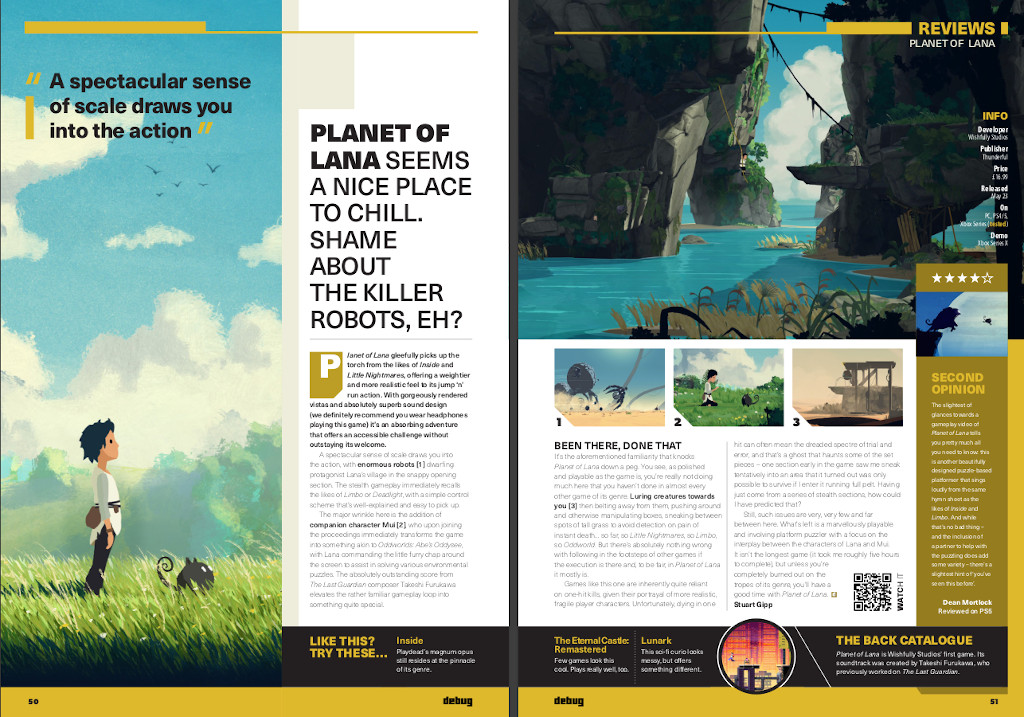Review: Debug
The vast number of indie games published every month, on big stores like Steam and on smaller sites like itch.io, can be overwhelming. If a title doesn’t generate a lot of buzz (like Dredge in 2023 or Vampire Survivors in 2022), it’s easy for it to get lost in the shuffle.
Part of the joy of indie gaming is the sense of discovery, when you come across something truly special that very few people are talking about. Debug is a new video game magazine that may reignite that joy among its readers.
Published quarterly out of Norwich in the UK, each issue is packed with previews, reviews, interviews and feature articles, focused entirely on indies.
To give just an example, the third issue featured reviews of Sea of Stars, Bomb Rush Cyberfunk, Cocoon, Viewfinder, Somerville, DungeonGolf, The Many Pieces of Mr. Coo, Everspace 2, Station to Station, Kentucky Route Zero, Boti Byteland: Overclocked, Full Void, Ad Infinitum, Girl Genius, The Repair House, Solar Ash, and WrestleQuest.
In addition to new titles, older indie games are featured in lists such as “the 10 weirdest indie games”, or because they’ve been ported to new platforms (e.g., Kentucky Route Zero was ported to Xbox earlier this year).

A two-page spread from issue 3 about the game “Planet of Lana”. (Credit: Debug. Fair use.)
Just like many indie games, Debug lacks a bit of polish. One writer uses the redundant construction “also …, too” so frequently that I started to find it a bit grating. Issues 1 and 3 accidentally included the same top 10 list. Small things like that. On the other hand, the magazine is visually very appealing and gives a lot of space to the beautiful artwork from the games it features.
The reviews strike a good balance of offering criticism without tearing down the work of indie devs. They often include a second opinion, or pointers to other similar titles players might enjoy. Many titles showcased by Debug have received very little attention on platforms like Steam, so you’re definitely likely to discover something new.
Anyone who’s ever thought about developing an indie game will appreciate the interviews and feature articles that talk more about the process behind the games. But the magazine never feels like inside baseball—despite the name “Debug”, it’s accessible to folks who just want to play games.
As of this writing, the magazine is very affordable, with a US sales price of $10 for the print edition and $4 for the PDF version. I found the ordering process from the US painless, with a very reasonable $7 shipping fee for three print issues. For more than 80 pages of indie goodness, it’s a bargain, and I recommend Debug for all lovers of indie games.